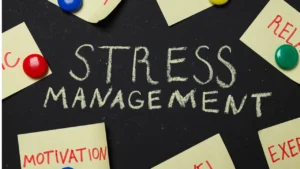Journaling is not just scribbling down thoughts; it’s an intimate act of self-reflection that has stood the test of time. For centuries, people have turned to journaling as a means of organizing chaos, finding clarity, and making sense of life’s complexities. Today, this age-old practice is recognized as a powerful tool for emotional well-being, helping individuals process emotions and manage anxiety. Whether you’re dealing with career stress, relationship worries, or just the everyday pressures of life, journaling can offer a safe space to release those emotions and regain control.
Understanding the Science of Journaling and Its Impact on Mental Health
When you put pen to paper, something remarkable happens. Numerous studies affirm that journaling has profound effects on mental health. Psychologists explain that expressing your thoughts in writing helps you externalize your emotions, making them easier to analyze and address. Writing about your feelings activates the brain’s prefrontal cortex, which plays a key role in decision-making and emotional regulation. This not only helps reduce negative emotions but also fosters a sense of calm and clarity.
Additionally, journaling shifts the brain from a reactive mode to a reflective mode. This is especially beneficial for individuals experiencing anxiety, as it allows you to distance yourself from intrusive thoughts and view situations more objectively. Whether you’re writing about a bad day or outlining solutions for a problem, journaling offers relief from the mental clutter that anxiety often creates.
Exploring Different Journaling Techniques for Emotional Processing
Journaling isn’t a one-size-fits-all approach; there are numerous techniques to suit different personalities and needs. Some people prefer free writing, where they simply jot down whatever comes to mind without overthinking. This method encourages honesty and allows emotions to flow freely. Others might find guided prompts helpful for focusing on specific topics, like gratitude or personal challenges.
For those struggling with chronic anxiety, cognitive journaling can work wonders. This involves tracking anxious thoughts, identifying triggers, and reframing negative beliefs. Another popular method is bullet journaling, which combines structured organization with creativity. It’s ideal for individuals who like to merge emotional processing with goal-setting or habit tracking.
Tips for Making Journaling a Consistent Habit
Consistency is key to unlocking the full benefits of journaling. Start by setting aside a specific time each day, whether it’s 10 minutes in the morning or before bed. Keeping a dedicated notebook or journaling app on hand ensures you’re always ready to capture your thoughts.
If you find it difficult to get started, begin with simple prompts such as, “What made me feel happy today?” or “What challenges did I face, and how can I overcome them?” Over time, this practice will become second nature, much like brushing your teeth. The more you journal, the more you’ll notice it becoming an integral part of your emotional toolkit.How Journaling Complements Other Stress-Relief Techniques
Journaling alone is immensely effective, but its benefits are amplified when paired with other stress-relief practices. For instance, breathing exercises and meditation—which are discussed in the Stress Relief Techniques Article—work wonderfully alongside journaling. Breathing helps calm your nervous system, while journaling gives you the space to process lingering feelings.
Imagine taking five minutes to practice diaphragmatic breathing before sitting down to write about your day. This combination helps create a serene headspace, making it easier to tune into your feelings and organize your thoughts. Together, these practices can become a synergistic routine that nurtures both your mind and body.
A Comparative Chart of Journaling Techniques and Their Benefits
Journaling is a versatile tool. Below is a chart comparing popular journaling techniques and their key benefits:
|
Journaling Technique |
How It Works |
Benefits |
|---|---|---|
|
Free Writing |
Write continuously without filtering thoughts |
Encourages emotional release and uncovers hidden issues |
|
Gratitude Journaling |
List things you’re thankful for |
Cultivates a positive mindset and reduces stress |
|
Cognitive Journaling |
Analyze thoughts, identify triggers, reframe |
Reduces anxiety and promotes rational thinking |
|
Bullet Journaling |
Combine structure with emotional tracking |
Boosts mindfulness and improves organizational skills |
|
Guided Prompt Journaling |
Respond to specific questions or prompts |
Provides focus and clarity about specific emotions |
This chart serves as a quick guide to help you decide which method resonates best with your goals. Whether you need catharsis, clarity, or creativity, there’s a journaling style for everyone.
Long-Term Benefits of Journaling for Mental Well-Being
Journaling is not just a temporary fix; it’s a lifelong ally. Over time, consistent journaling can improve emotional resilience and self-awareness. It helps you identify recurring themes or patterns in your life, enabling you to tackle deep-rooted issues. Journaling also serves as a record of personal growth, allowing you to look back and see how far you’ve come.




